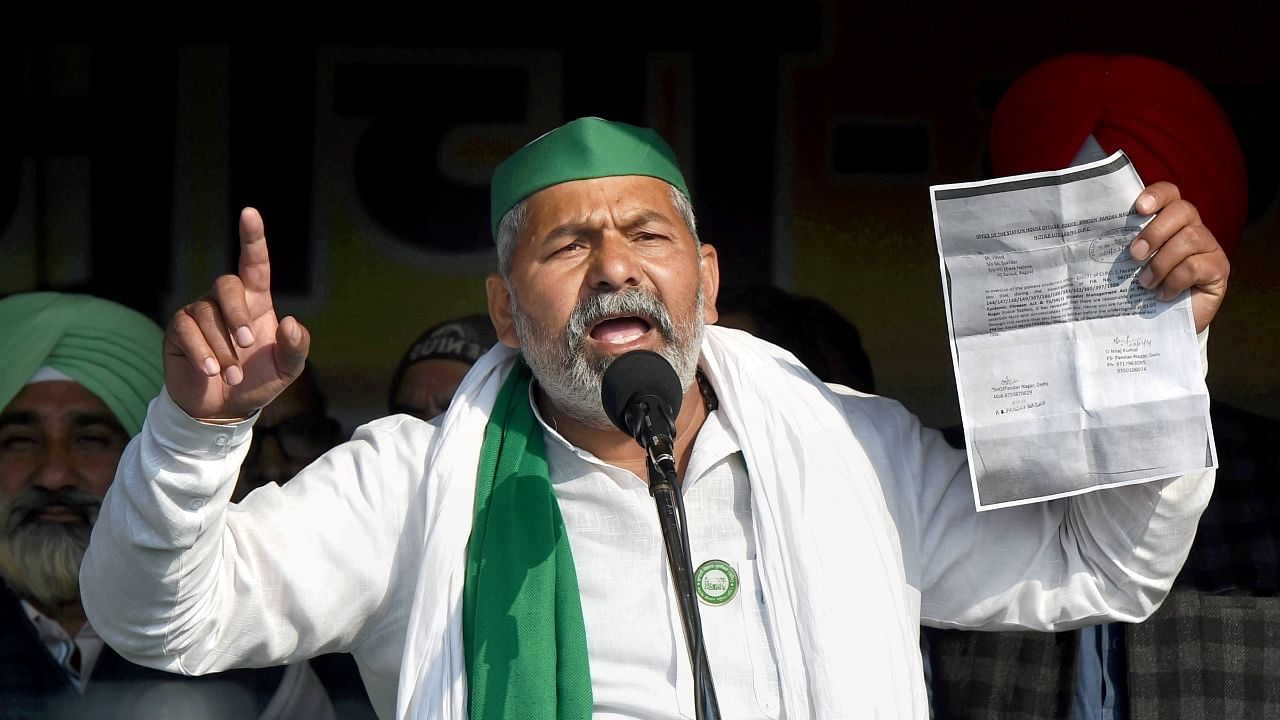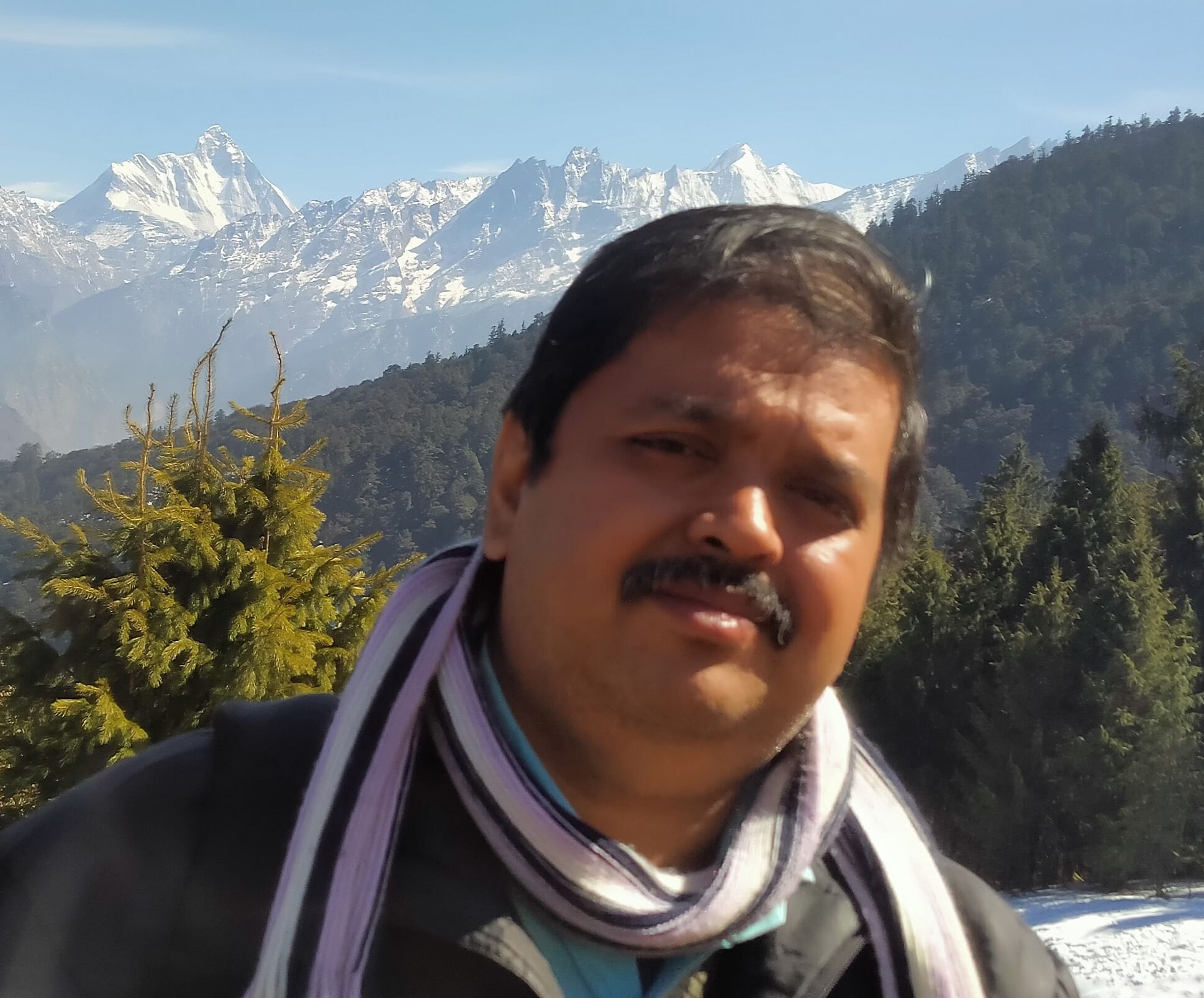
On the evening of January 28, the mood at the Ghazipur protest site, near the Delhi-Uttar Pradesh border, was quite sombre.
The Uttar Pradesh government was moving in riot control forces to vacate the protest site, while the Ghaziabad district administration withdrew water and sanitation facilities following violence during the tractor rally on Republic Day.
The crowd of agitators was beginning to thin. It seemed the tide had turned in the government’s favour.
Just then, images of a tearful Rakesh Tikait, the farmer leader who was leading the protest at Ghazipur, were splashed on national television.
The ripples of Rakesh’s breakdown were felt 80 kilometres away in Muzaffarnagar, where the video melted the hearts of thousands of Jats who gathered in support and decided to head to Ghazipur to uphold the honour of the son of legendary farmer leader Mahendra Singh Tikait.
Thus the farmers’ agitation that appeared to lose steam in the aftermath of the Republic Day violence moved forward with fresh zeal.
Subsequently, massive Kisan mahapanchayats were held in Muzaffarnagar, Baghpat, Shamli, Mathura — the sugarcane belt in western Uttar Pradesh — extended support to the younger Tikait, catapulting him as an unlikely leader of the farmers’ agitation, which till now was being dominated by the farmers’ unions from Punjab.
It was just a matter of three days before Tikait, perceived as a villain in the pack, to become the face of the farmers’ agitation. He could never attain the clout wielded by his father, but this was his moment.
“Work on the formula of one tractor and 15 people for 10 days from every village,” Tikait told his supporters, as he warned the Centre of a prolonged agitation stretching up to October and beyond.
The growing support to Rakesh from the hinterland drew hoards of political leaders. Ghazipur protest site was back in action.
The Tikaits wield considerable influence among the Jat community in western Uttar Pradesh, mostly due to the role played by senior Tikait, who was fondly known as ‘Chaudhary Baba’, in the 1980s during the sugarcane growers’ fight for a remunerative price for their crop. He emerged as a farmers’ leader after the death of former prime minister Chaudhary Charan Singh.
The senior Tikait, who founded the Bhartiya Kisan Union (Arajnaitik), never harboured political ambitions. His blunt nature and rustic charm won him respect as the leader of Jats beyond his own Baliyan khap.
After he died in 2011, the mantle of the president of the BKU(A) passed on to his eldest son Naresh Tikait, while the younger son Rakesh went on to test the political waters.
He contested the 2007 Uttar Pradesh Assembly elections as a candidate of the Bhartiya Kisan Dal from Khatauli, much against the wishes of his father and lost his deposit.
In 2014, Rakesh entered the fray as a Rashtriya Lok Dal (RLD) candidate for the Amroha Lok Sabha seat, but was unsuccessful. The support of the Tikaits to RLD supremo Ajit Singh, the son of former prime minister Chaudhary Charan Singh, failed to ensure his win, largely due to the polarisation on religious lines in the aftermath of the 2013 Muzaffarnagar riots. Jats backed the BJP indicating the diminishing clout of the Tikaits in the region. Rakesh had flirted with the Congress, the BJP and the RLD in his electoral outings, prompting the Samyukt Kisan Morcha, steering the farmers’ agitation, to view him with suspicion.
Before becoming a farmers’ leader, Rakesh was a sub-inspector in the Delhi Police, a job he quit to support his father. He accompanied the senior Tikait to protest sites and meetings with government officials and politicians. However, he could not resist the lure of politics.
With the newfound spotlight, the Tikaits are now moving in unison with Naresh seeking to repair the Jat-Muslim divide by publicly accepting the “mistake” of supporting the BJP.
As a result, a number of Muslims supporting Rakesh at the Ghazipur border as the agitation grew after the Republic Day violence.
Bhim Army chief Chandrashekar Azad, who also hails from western Uttar Pradesh, has also visited Rakesh and has been sending supporters regularly.
Which way this fresh wave of support for Rakesh lead? Will there be a political realignment in the caste-based politics of Uttar Pradesh ahead of the Assembly elections next year? Only time will tell.
